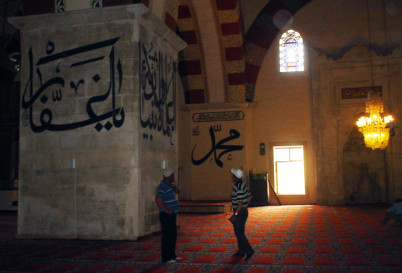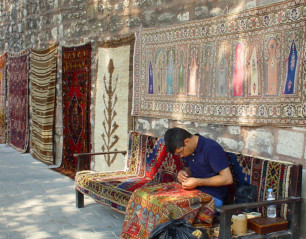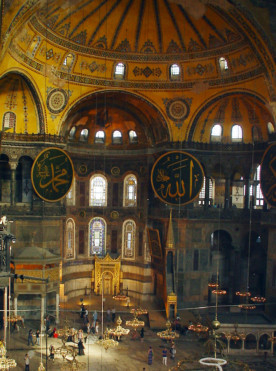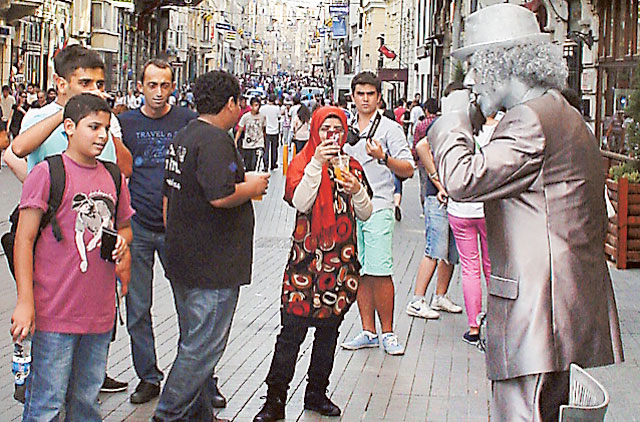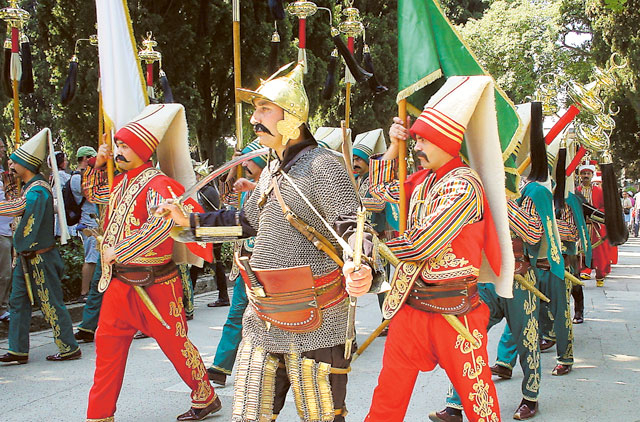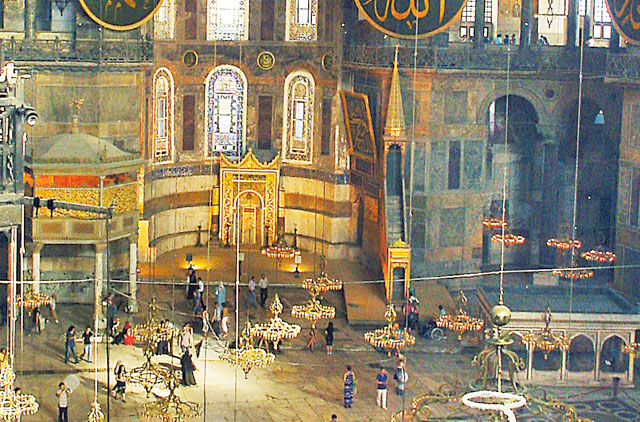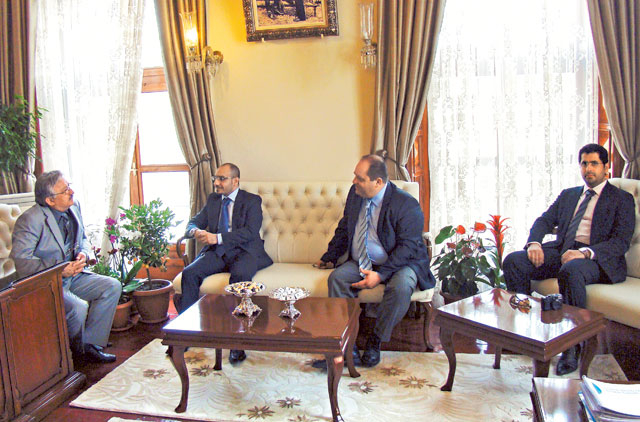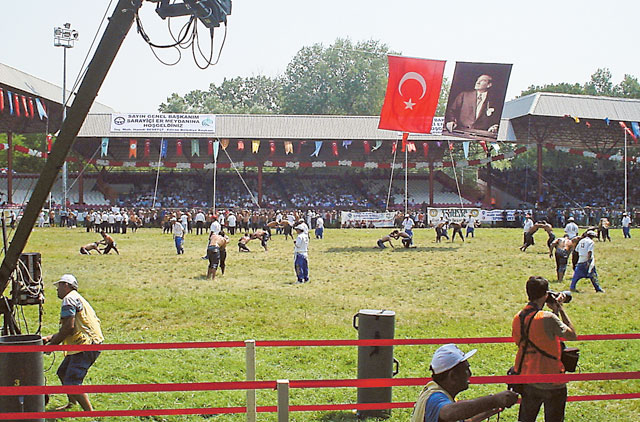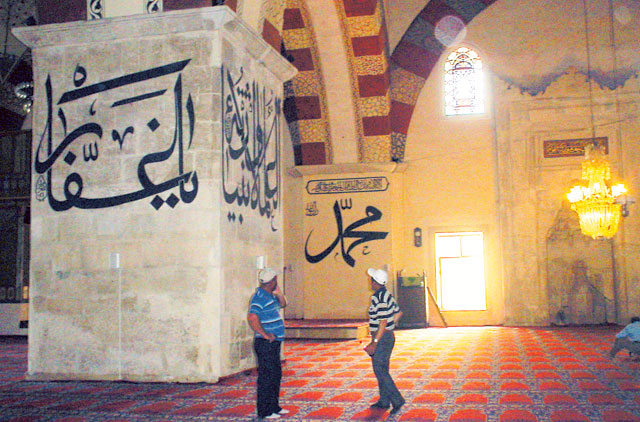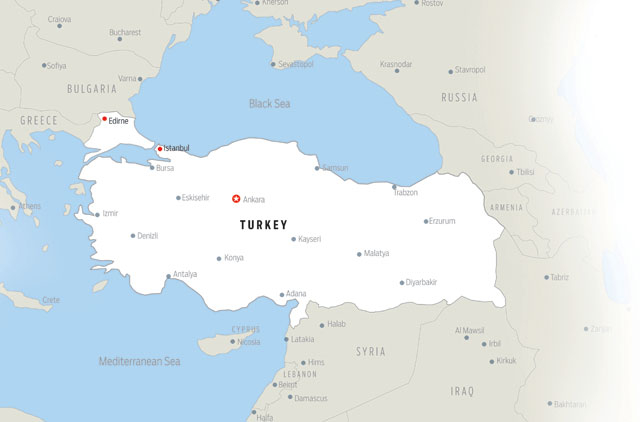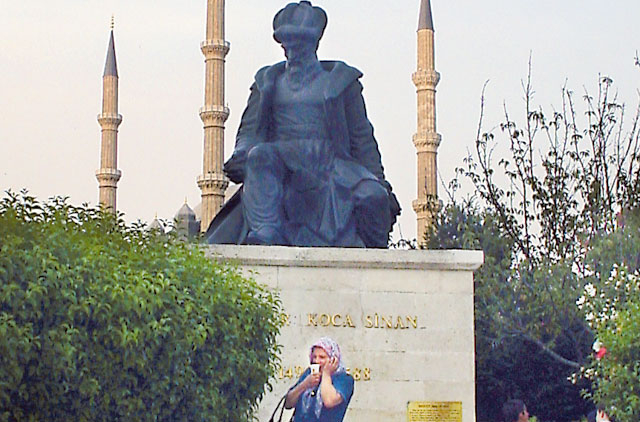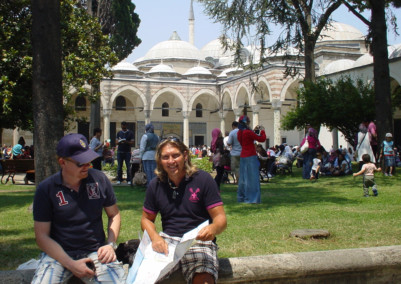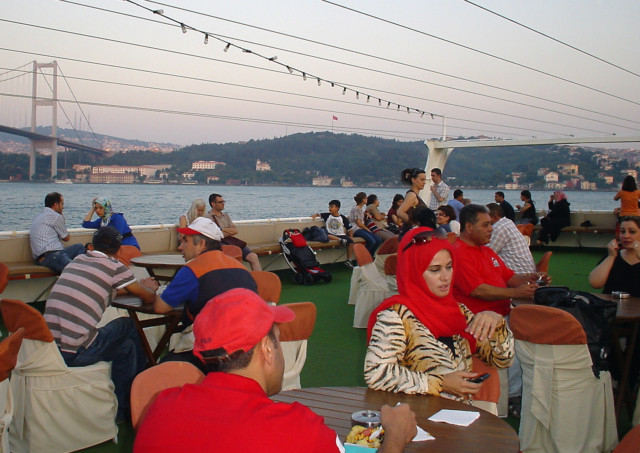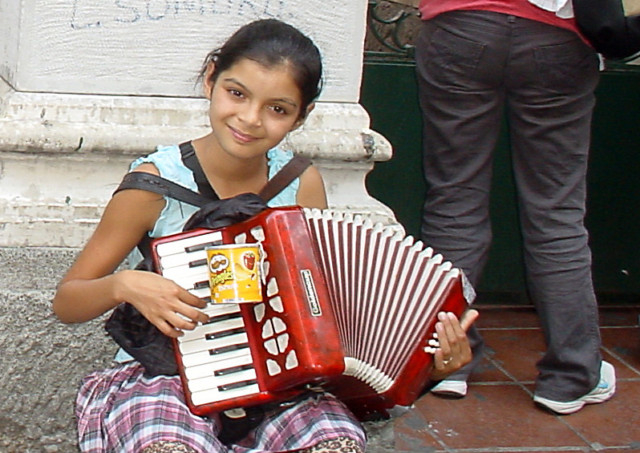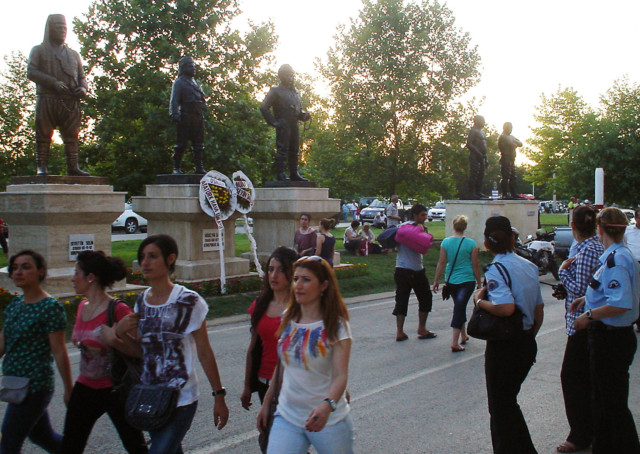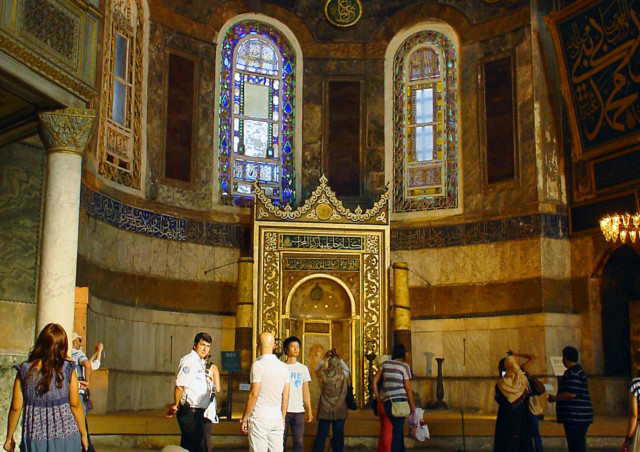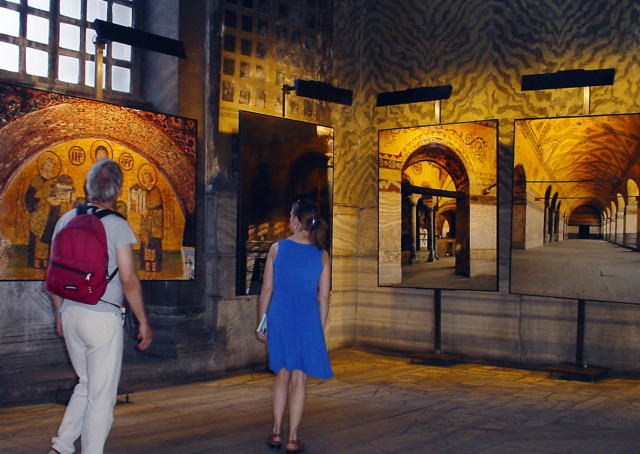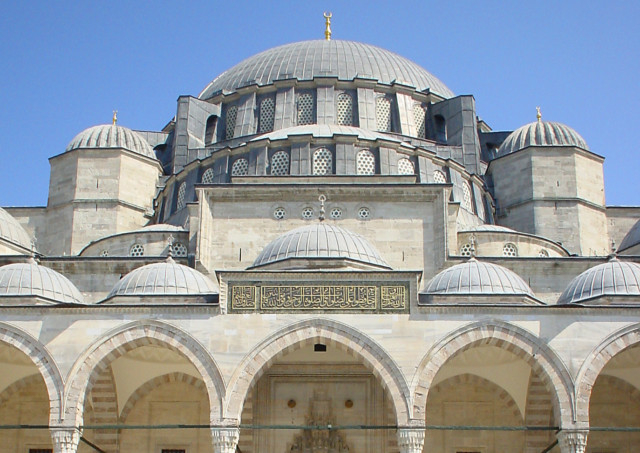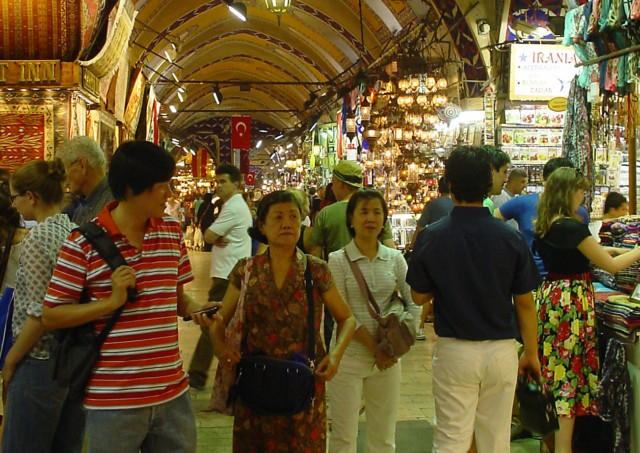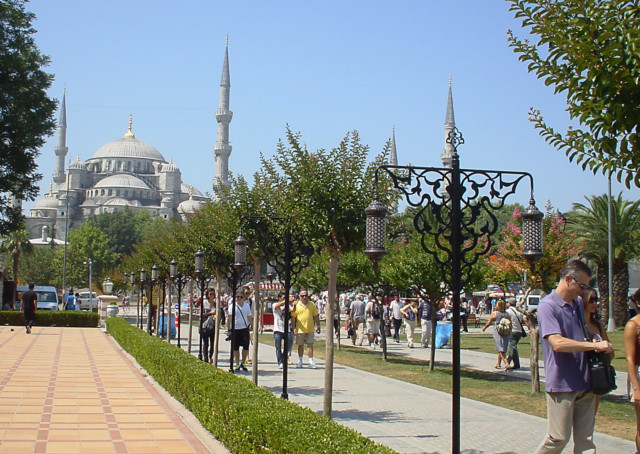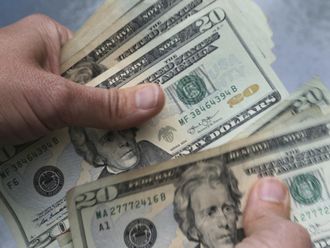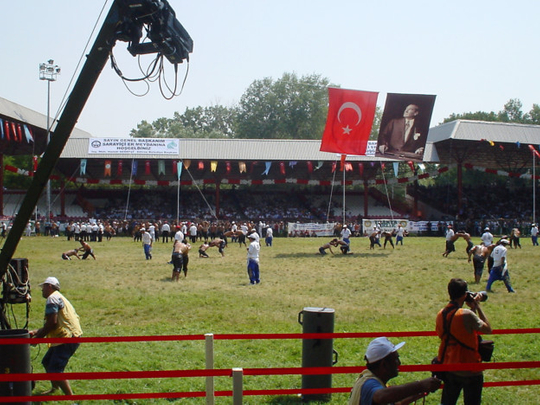
Dubai: The ice cream man wearing a traditional ornamented Turkish vest was putting up a show in Taksim Square in Istanbul while mixing and scooping out different flavours of vanilla, chocolate, and strawberry.
Then, he encountered an Arab tourist asking for “foustouq?” — the Arabic word for pistachios.
Big numbers of Arab tourists are seen everywhere in Istanbul and other Turkish cities this year, as other tourism destinations, especially Egypt, Syria, and Lebanon, are grappling with the Arab Spring and its aftereffects.
Arab tourists come from different countries, including Libya, Iraq, and Jordan. But, the prominent Arab tourists come from the Arab Gulf countries, namely Saudi Arabia, Kuwait, and the United Arab Emirates.
“I told my husband that I feel I am in Kuwait,” Shaikha, a 30-year-old Kuwaiti teacher, said.
“It is a comfortable country from an Islamic point of view, and at the same time, its atmosphere is more European,” she said, walking down Taksim Square with her husband and little girl in a stroller. In Turkey, for example, Arab Muslims don’t face any problem finding halal food.
Vibrant area
Arab tourists are seen in every inch of Taksim area, one of the most famous neighbourhoods in Istanbul. It is full of shops, cafes, and restaurants offering famous Turkish dishes, and doner sandwiches or shawarma.
Up to 33 million tourists are expected to visit Turkey this year, according to Turkish culture and tourism minister Ertuğrul Günay. That will be up from 31.44 million tourists who visited in 2011. Turkey’s tourism revenue rose to $23.1 billion (Dh84.84 billion) in 2011, compared with $20.8 billion in 2010, according to Metin Kilic, the director general at the foreign ministry and also the ministry’s representative in the far western Turkish city of Edirne. “With these figures, Turkey’s tourism revenues accounted for three per cent of the gross national product,” Kilic said.
A majority of the visitors in 2011 were, however, from Germany, Russia, and the UK, according to the culture and tourism ministry. There are no official figures of Arab tourists visiting Turkey this summer, but the numbers are estimated to be in the hundreds of thousands. For example, in 2011, according to official figures, 55,060 Emiratis and those with a residence permit in the UAE visited Turkey, an increase of 16.73 per cent. In the first six months of 2012, 19,496 UAE citizens visited Turkey, an increase of 54.58 per cent.
Turkey was a natural choice for Gulf travellers as many Arab countries, including Syria, experience social upheaval. Lebanon, a favourite destination for Gulf tourists during summer, was excluded this year after their governments advised their citizens to stay away from it.
Some Turkish officials believe the increase in the number of Gulf tourists balances the decrease in tourists from other Arab countries, such as Iraq, Lebanon, and Syria.
“We are here because of the Arab Spring,” an Egyptian man in his late 20s, who asked to be named as Ahmad, said. Istanbul was his choice for a honeymoon, he said as he posed to take a picture with his wife in the garden of Topkapi Palace. Included in the Unesco world heritage site list, the palace was the primary residence of the Ottoman Sultans for approximately 400 years.
“Many people are coming here because of the situation in the rest of the Arab region,” Mazen Al Harthi, a lecturer at a Saudi university who was visiting with his father, wife, two sisters, and a brother, said.
Travel to Europe
On whether Saudis travelled to European destinations as well, Al Harthi said: “There are nearly 100,000 Saudis who spent their summer vacation in Europe this year.” He visited London with his relatives before arriving in Turkey.
“Arabs are coming to Turkey after the Turkish drama encouraged them to come,” his sister, added joking. She was referring to the increasing popularity of Turkish cities among Arabs since Turkish dramas began airing on Arab channels.
While industry is the backbone of the Turkish economy, more attention is being given to cities that are receiving increasing numbers of tourists, officials said. Istanbul received nearly 8 million tourists last year. It is the second most popular tourist destination in Turkey after Antalya, which received nearly 11 million tourists in 2011, Kilic said.
At Istanbul airport, the queue for passport control is evident of the varied types of tourists Turkey receives. They include those wearing the hijab and covering their heads, adults wearing shorts, old people and children, men and women, Europeans, Asians as well as those from the Middle East.
“Most people come to see the culture of the country,” Swani, a TV producer from Germany in her 30s, said. Swani has spent nearly two weeks visiting different parts of Turkey with her friends before arriving in Istanbul.
Turkey is a place of “nice people, good food, different landscapes — you see forests, beaches, mountains — and is a place of rich culture.”


